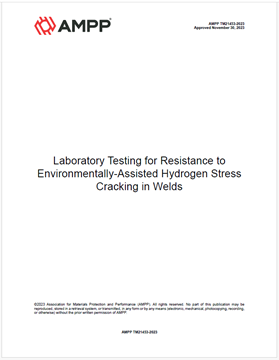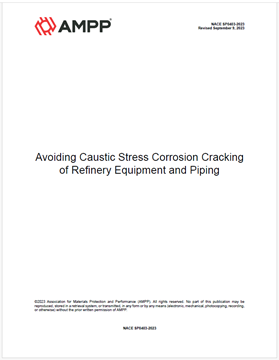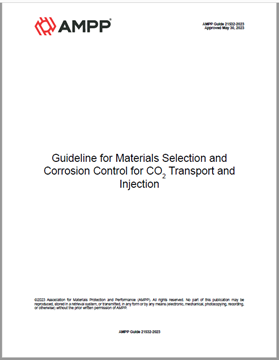Search
NACE TM0177-2024, Laboratory Testing of Metals for Resistance to Sulfide Stress Cracking and Stress Corrosion Cracking in H2S Environments
Also Purchased
AMPP TM21453-2023, Laboratory Testing for Resistance to Environmentally-Assisted Hydrogen Stress Cracking in Welds
Product Number:
AMPP TM21453-2023
Publication Date:
2023
$109.00
NACE SP0403-2023, Avoiding Caustic Stress Corrosion Cracking of Refinery Equipment and Piping
Product Number:
NACE SP0403-2023
Publication Date:
2023
$109.00
AMPP Guide 21532-2023, Guideline for Materials Selection and Corrosion Control for CO2 Transport and Injection
Product Number:
AMPP Guide 21532-2023
Publication Date:
2023
$109.00




